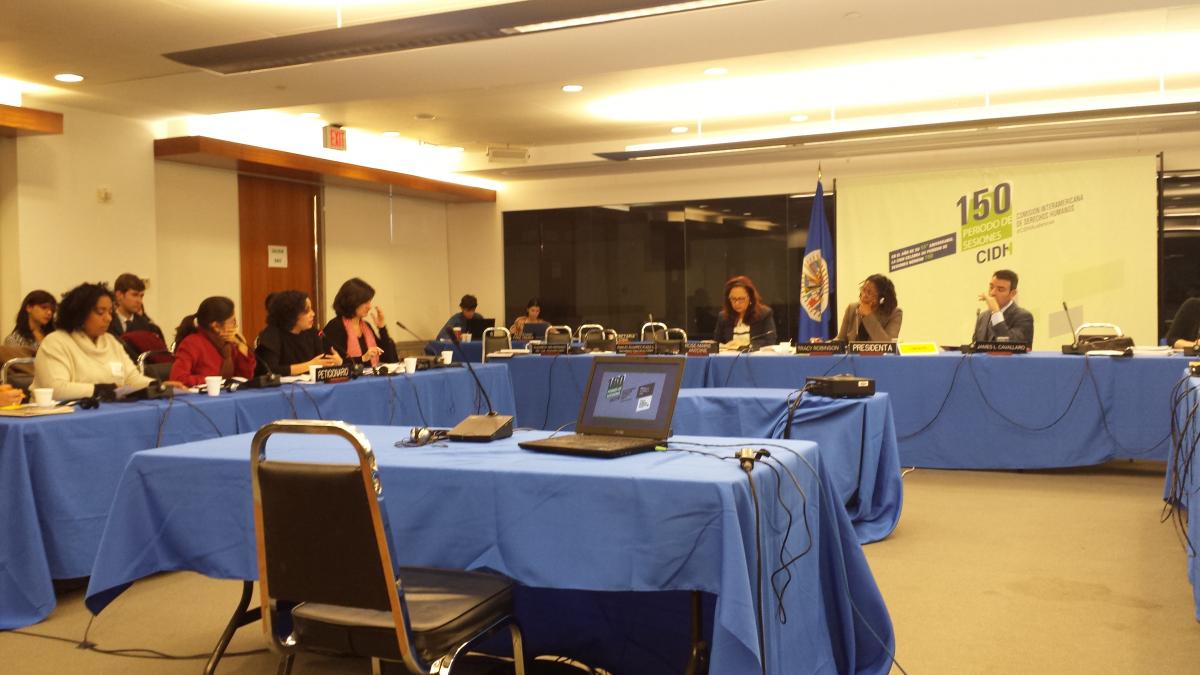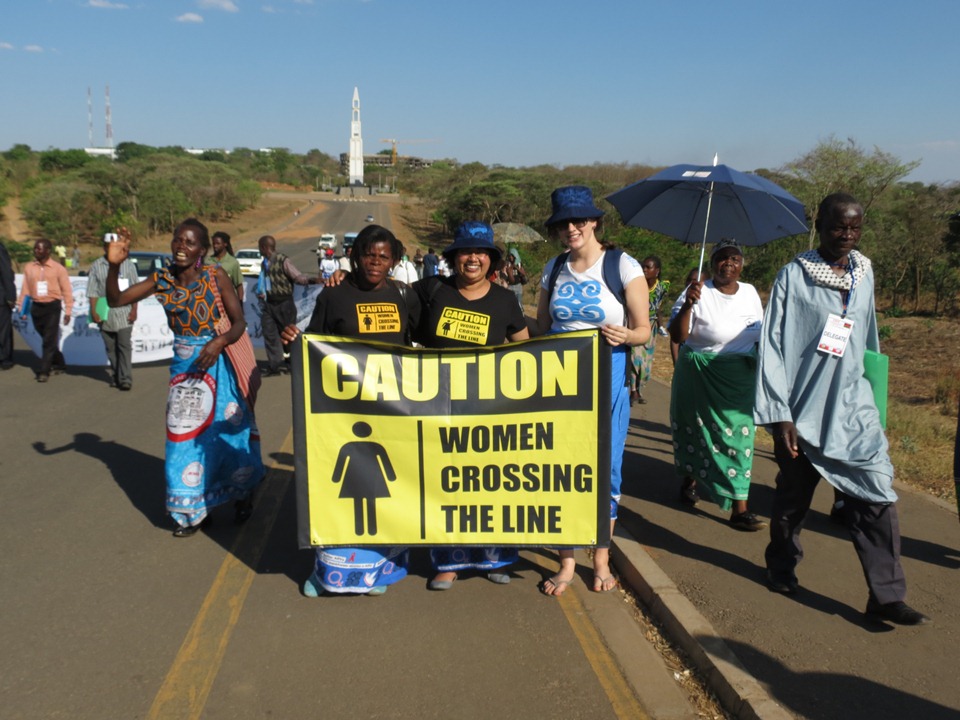This year we celebrate the 20th anniversary of the adoption of the Inter-American Convention for the Prevention, Punishment, and Eradication of Violence against Women (Belém do Pará Convention) in June 1994. To date, it has been ratified by 32 of the 34 members of the Organization of American States (OAS). As we commemorate this important event, we are reminded that feminist movements, by invoking the Convention, have influenced the drafting of various laws on violence against women, undertaken numerous awareness campaigns, and supported legal and health services for women throughout the Americas.
On this anniversary, JASS Mesoamerica and several organizations and networks1, participated in a public hearing during the 150th session of the Inter-American Commission on Human Rights (IACHR). Held in Washington D.C. in March 2014, the hearing was titled Challenges and Pending Matters for the Protection of Women Twenty Years after the Belém do Pará Convention: Perspective of Women Human Rights Defenders (report available in Spanish).
This hearing was not only an opportunity to increase awareness about the risks and the particular types of violence that women defenders face in a context of discrimination, but also the wider implications of this violence2. For JASS, the Belém do Pará Convention acknowledges that aggressions—such as sexual harassment, sexist insults, rape, victim-blaming and shaming, and other forms of violence—are an extension of discrimination. Therefore, violence against women human right defenders reproduces and makes visible the gender inequalities that are entrenched in cultural and social behaviors in the region.
As the coordinator of the Mesoamerican Women Human Rights Defenders Initiative (IM-Defensoras), JASS presented evidence gathered since 2009 on the unique forms of violence that women defenders face in Mexico and Central America as result of their activism in defense of human rights. By working together with our allies and partners across the region, JASS has pioneered an innovative approach to understanding violence from a gender perspective and the need for gender-specific strategies by a wide range of human rights actors and governments. By bringing attention to the dangerous environment that women defenders have to live and survive in, JASS was able to underscore the lack of progress by governments to fulfill the commitments established by the Belém do Pará agreements in Mexico, Honduras, Guatemala and El Salvador.

Now, 20 years after the Belém do Pará Convention, and based on the work done by JASS and the IM-Defensoras, it’s clear that gender violence resulting from discrimination against women can be even more devastating than other forms of aggression in paralyzing or inhibiting a defender’s work. This type of violence creates shame and guilt by normalizing or justifying the aggressor’s actions, by ignoring women’s perspectives when they are denouncing abuses, and by segregating them from family, work, and community.
Commission Stands with Women Defenders
During the March hearing, Commissioner Tracy Robinson from Jamaica, current Rapporteur on the Rights of Women, noted that the “…protection of women human rights defenders is an excellent way to call attention to the duty of States in matters of equality.
“The support of women human rights defenders is a ‘duty’ of the States of the Americas and a priority for achieving equality of the sexes. […] it is an excellent way of emphasizing the fruit of our efforts with respect to violence against women, [but] by focusing at times only on domestic violence [this] in fact generates a distorted analysis of women’s reality.”3
In this sense the hearing made important gains in that it led the Commission to warn governments and non-governmental organizations that “Violence against women and structural gender-based discrimination continue to be profound and widespread problems in the region, and the response from States continues to be inadequate, in terms of both prevention and investigation and punishment.”
It further warned that “An unacceptable percentage of killings and other violent attacks on women continue to go unpunished, while human rights defenders—particularly those who defend the rights of women—are victims of attacks, the criminalization of their activities, public defamation campaigns, and the excessive use of police force against them, among other grave problems. The IACHR urges the States to make significant and urgent advances in implementing public policies that give effect to the standards established in the Convention of Belém do Pará, particularly through measures that dismantle the structural discrimination underlying violence against women.”4
Twenty years after the adoption of this important convention, JASS is pleased that the Inter-American Commission on Human Rights sent such a strong message to member States. We hope, however, that another 20 years will not go by before States take all necessary steps to implement the recommendations set forth by the Commission. In the meantime, JASS will continue to provide women defenders and their organizations the support needed to address real-time security concerns, re-energize, sustain and amplify their activism over the long-term.
___________________________________________________________________
1 JASS Mesoamerica worked with the Center for International Justice (CEJIL), Amnesty International, the Association for Women’s Rights in Development (AWID), the Feminist Collective for Local Development, the Latin American and Caribbean Committee for the Defense of Women’s Rights (CLADEM), the Oaxaca Consortium for Dialogue and Equity (Mexico), the Mesoamerican Women Human Rights Defenders Initiative, the National Network of Women Human Rights Defenders in El Salvador, Guatemala, and Mexico, and the Protection Unit of Human Rights Defenders in Guatemala.
2 See further information regarding the proceedings of the IACHR hearing in Spanish.
3 CIDH señala que es “deber” de los Estados apoyar a las defensoras de la mujer. March 28, 2014. Agencia EFE.
4 Press Release, Inter-American Commission on Human Rights, IACHR Wraps Up its 150th Session, April 4, 2014.


























